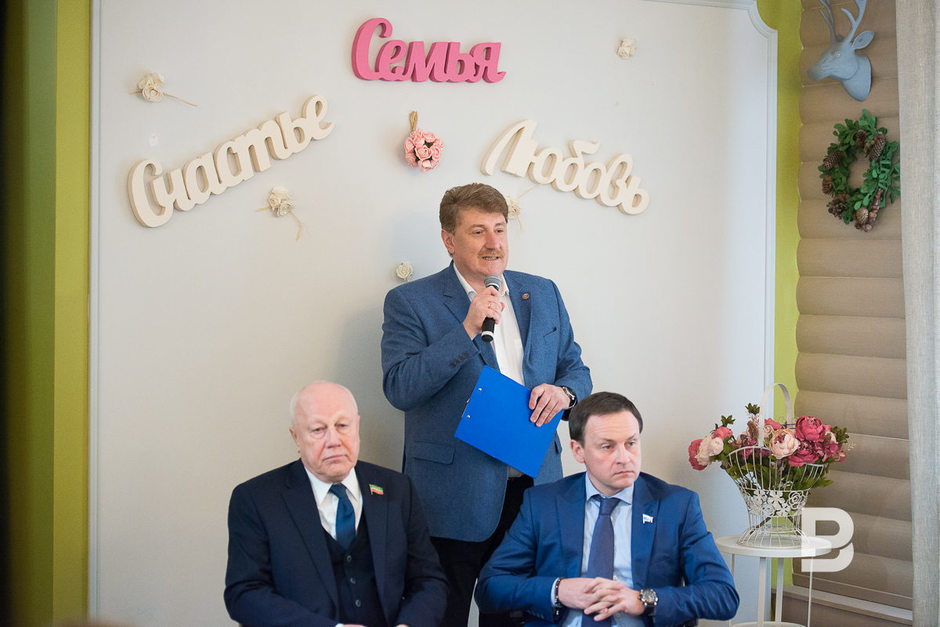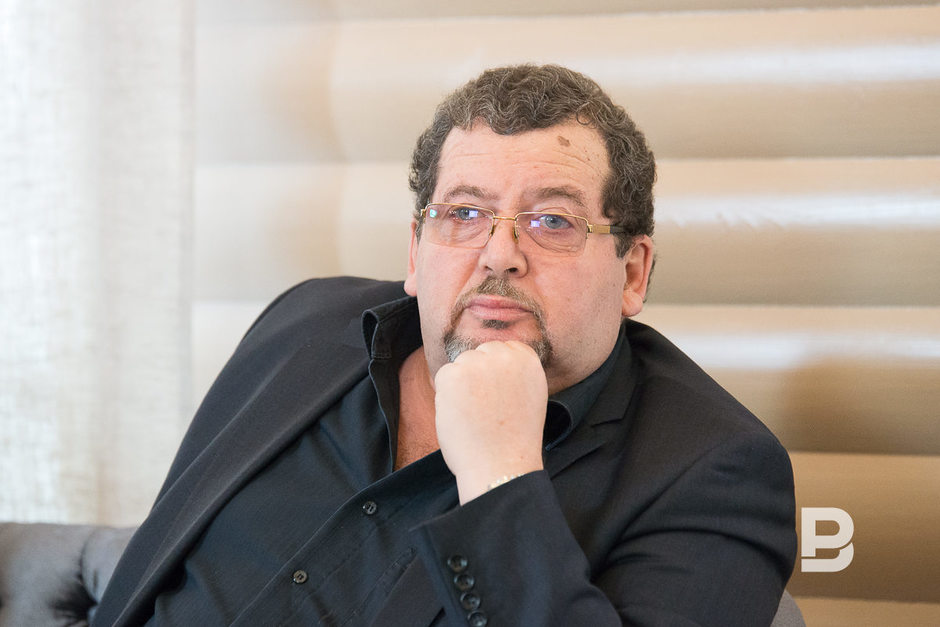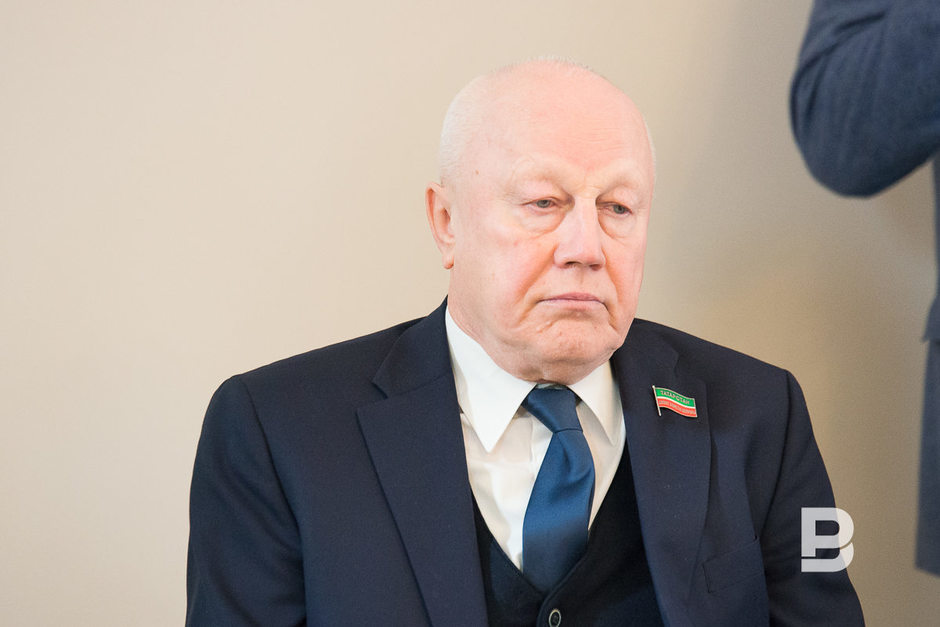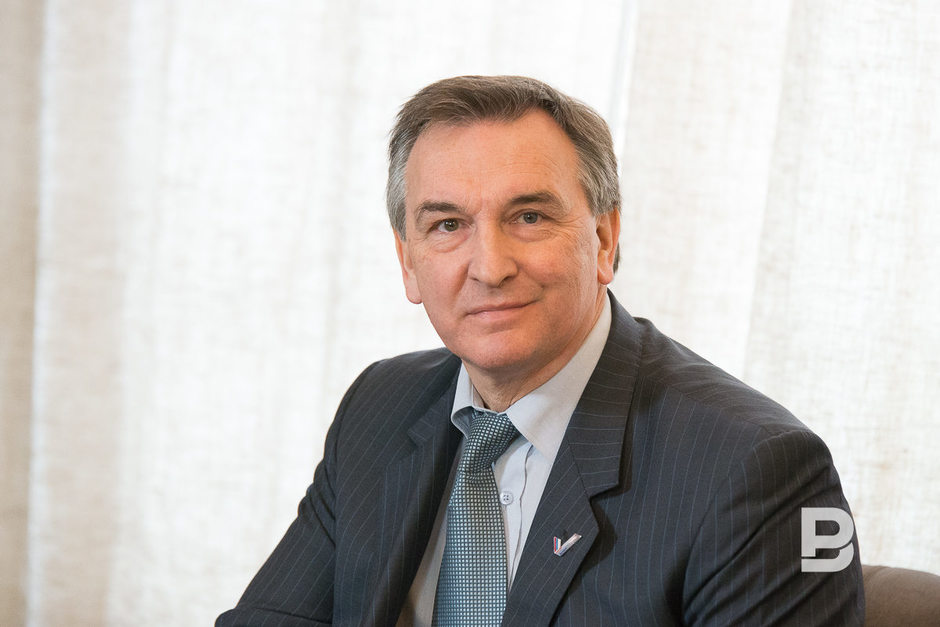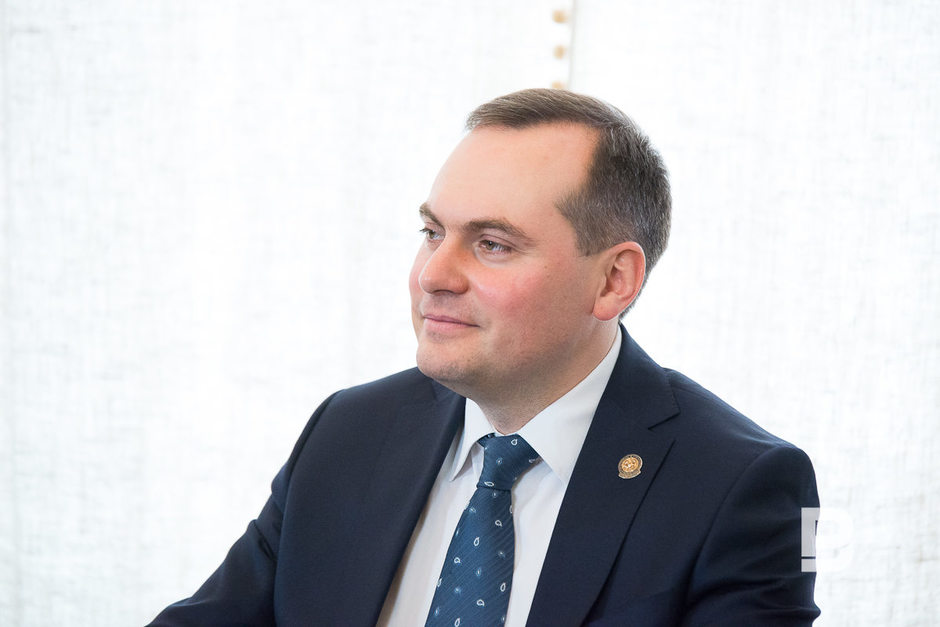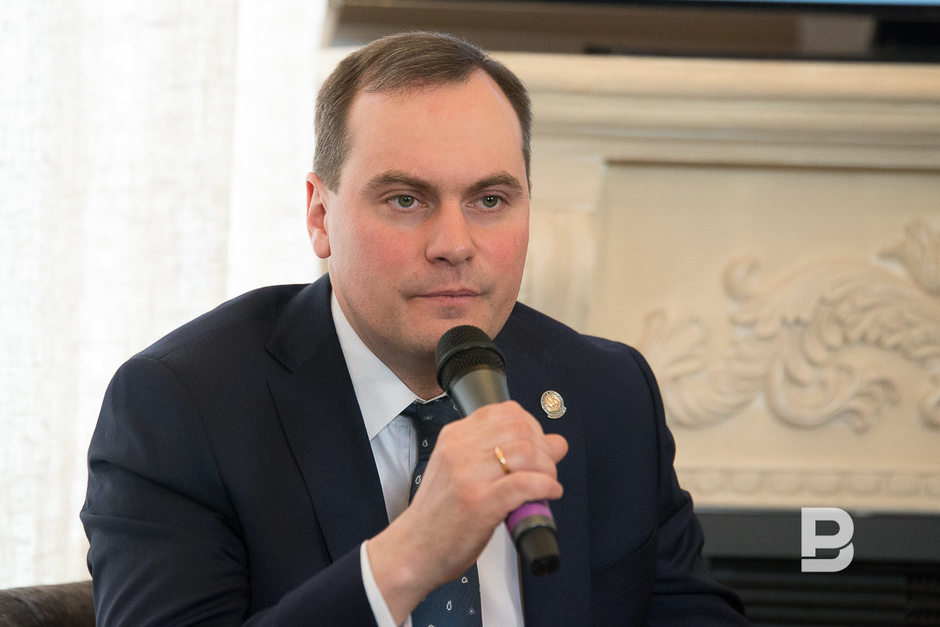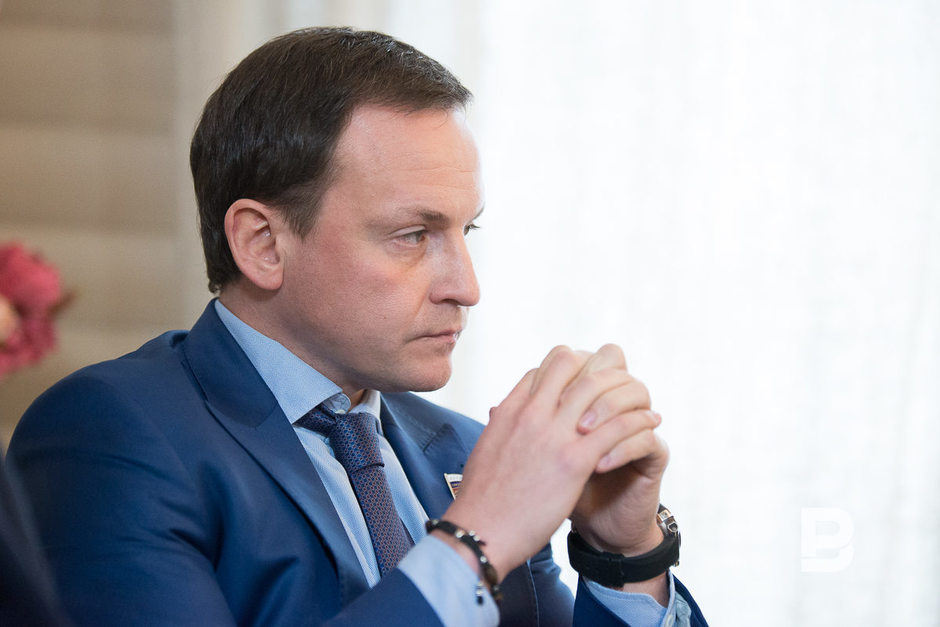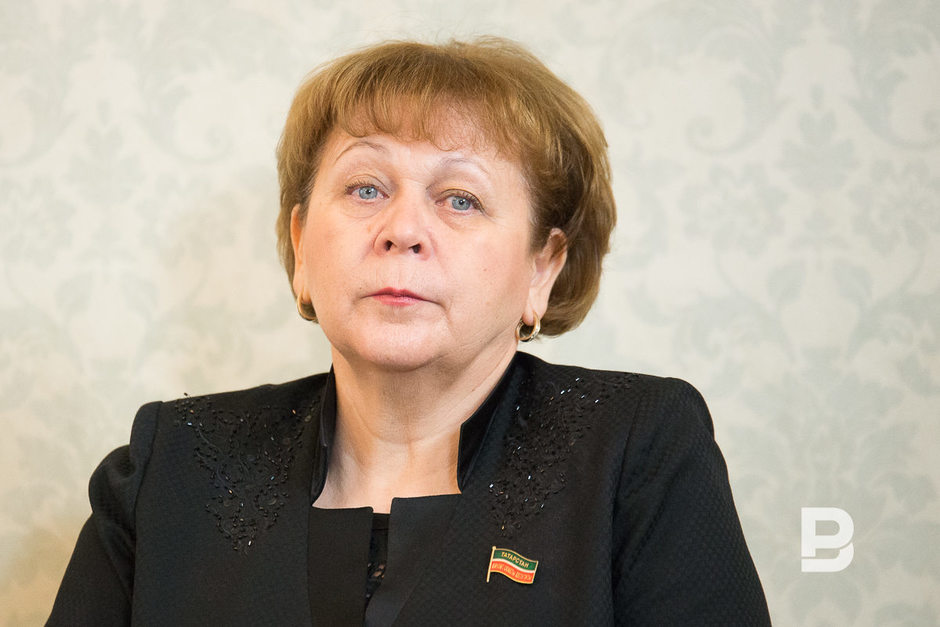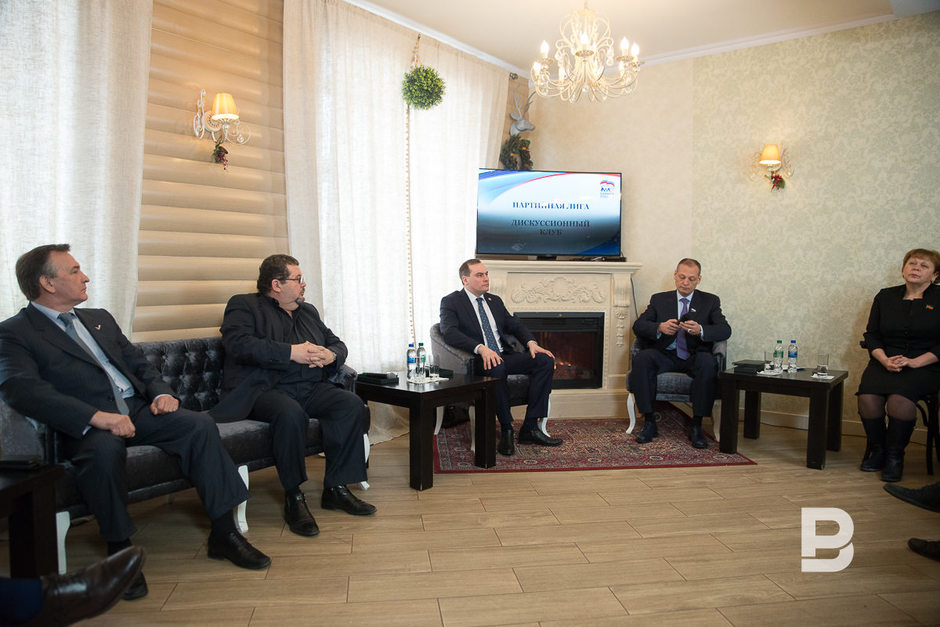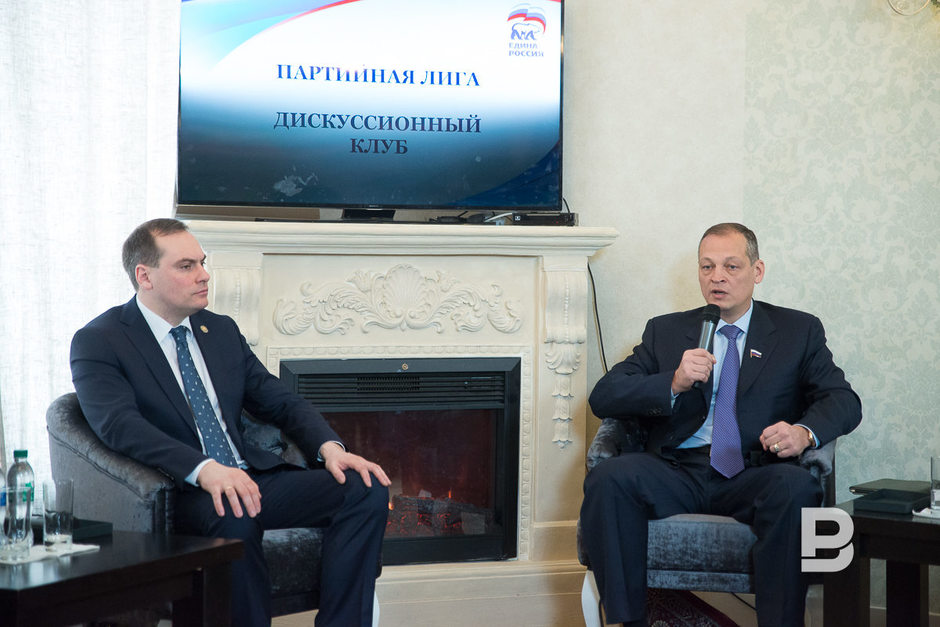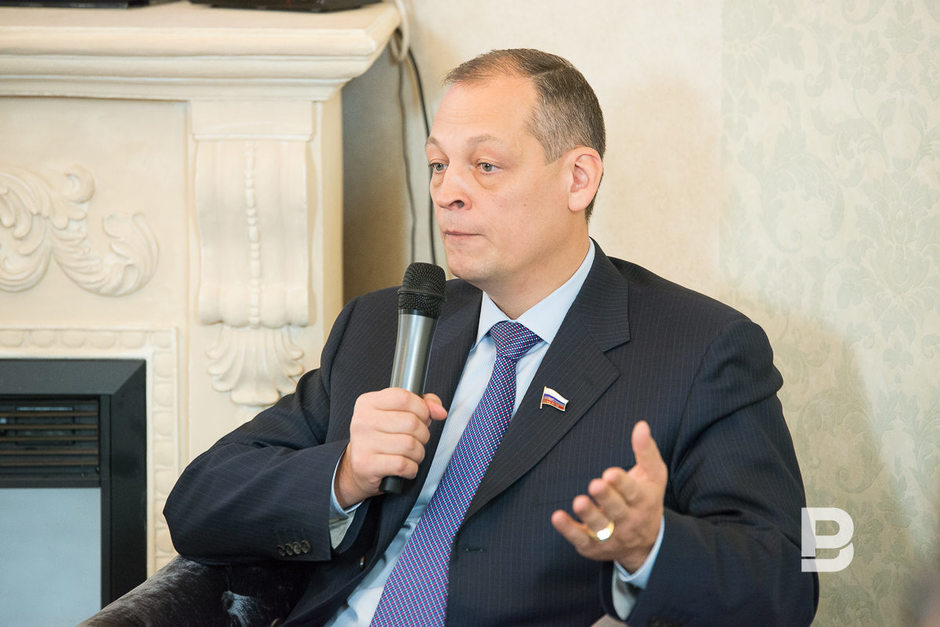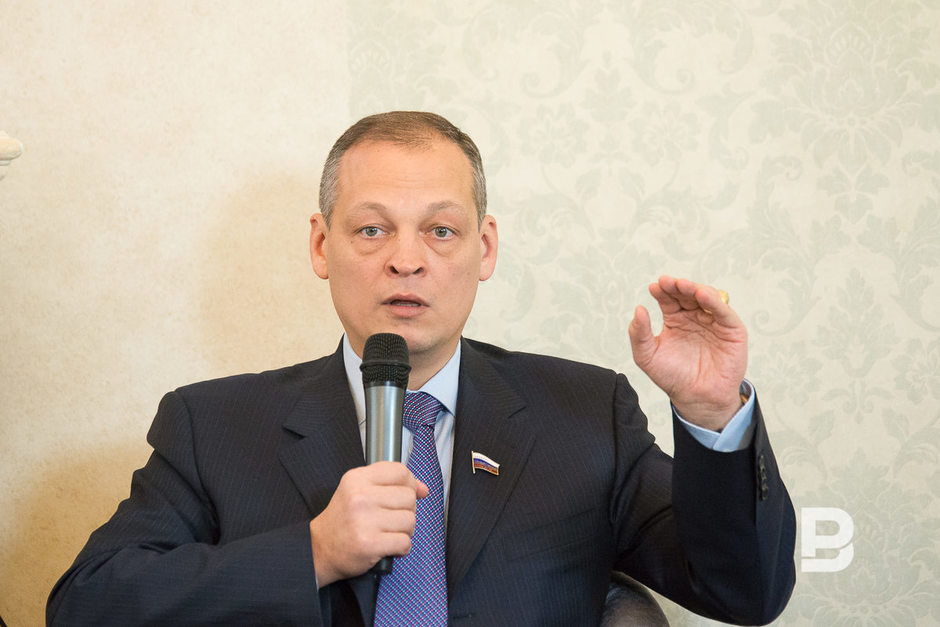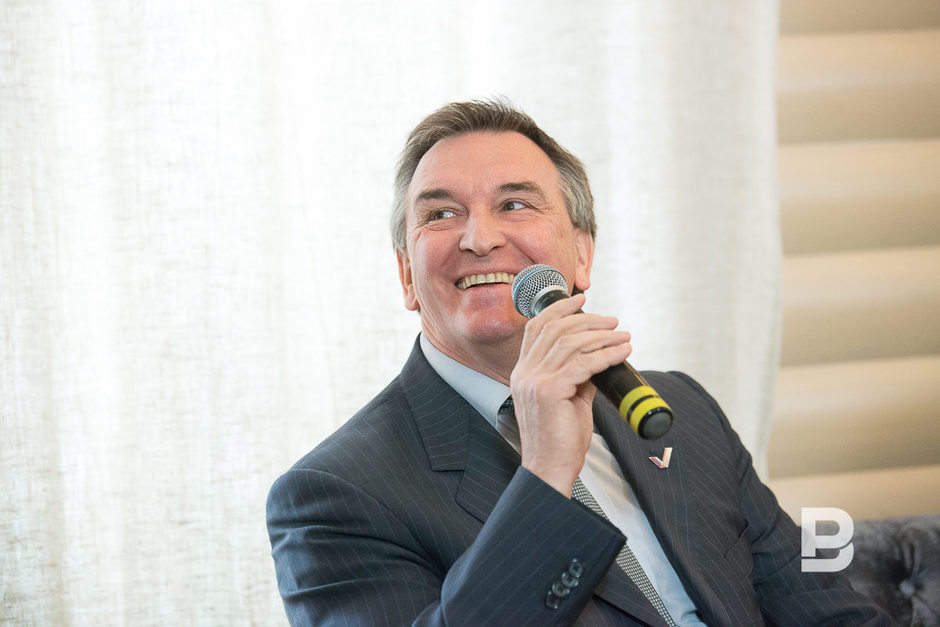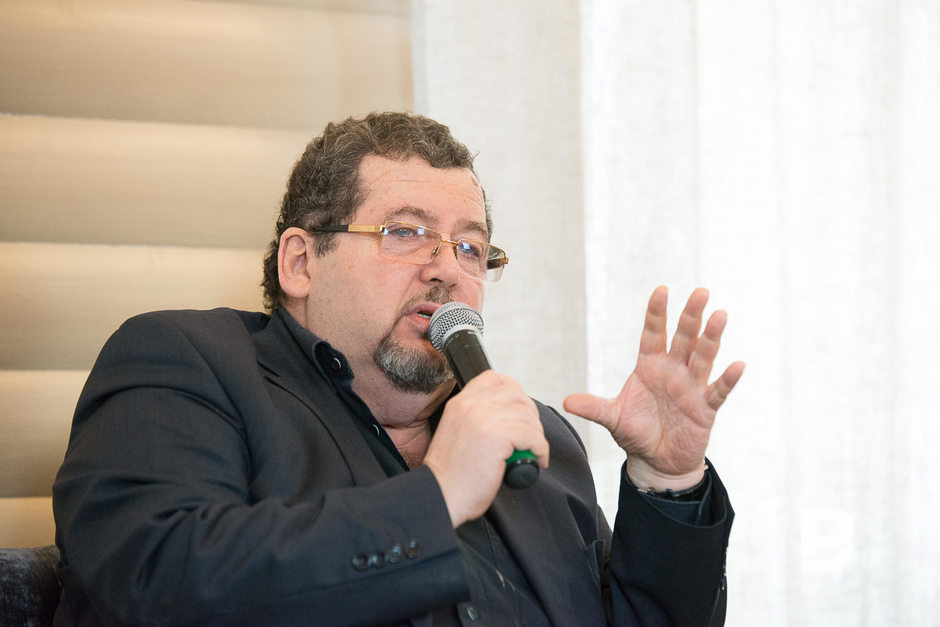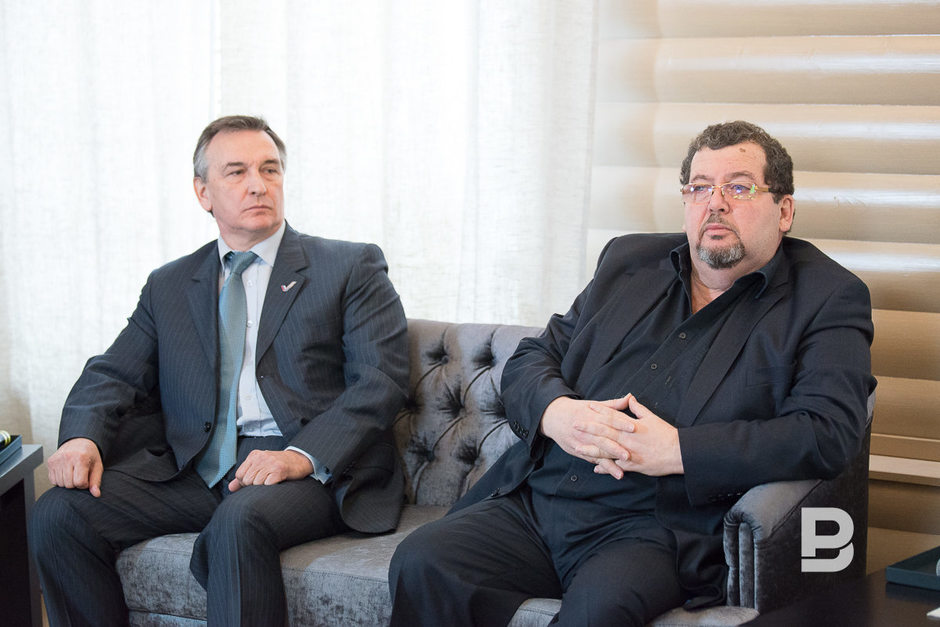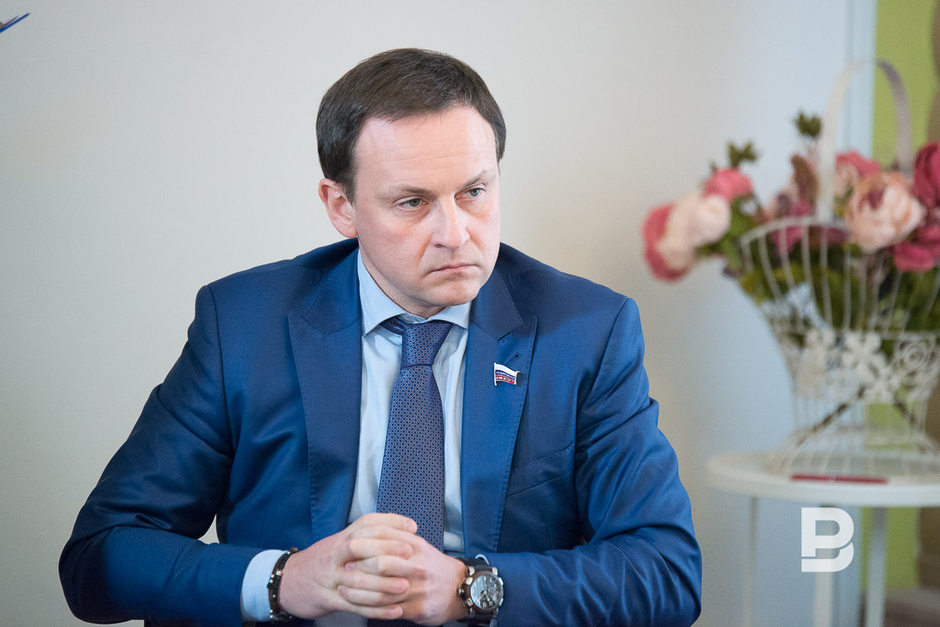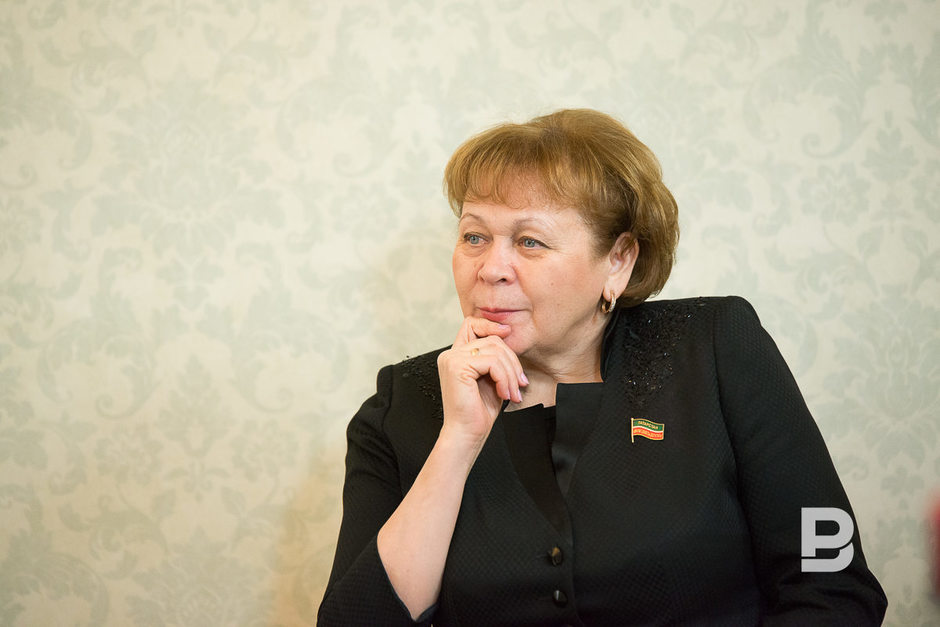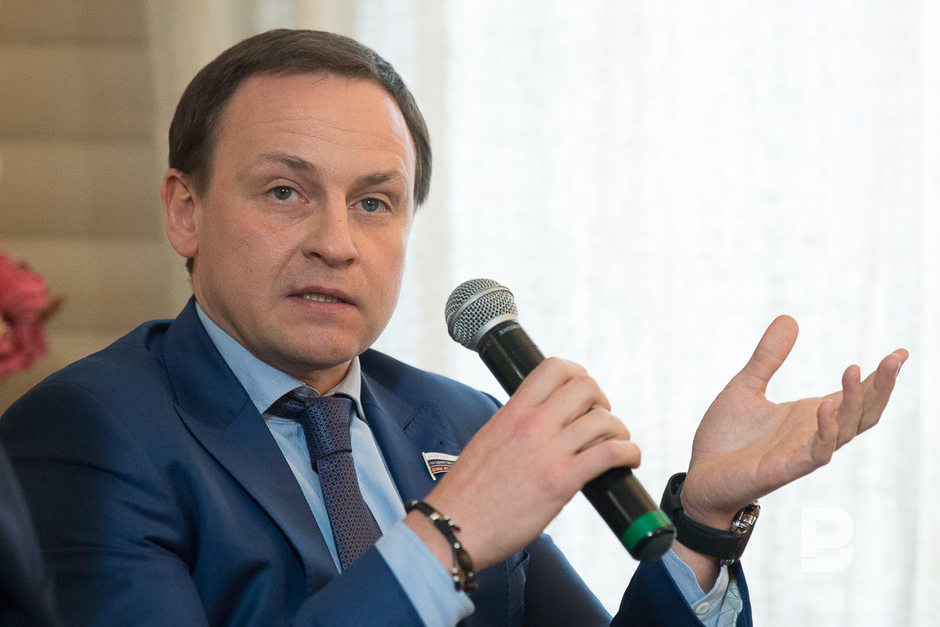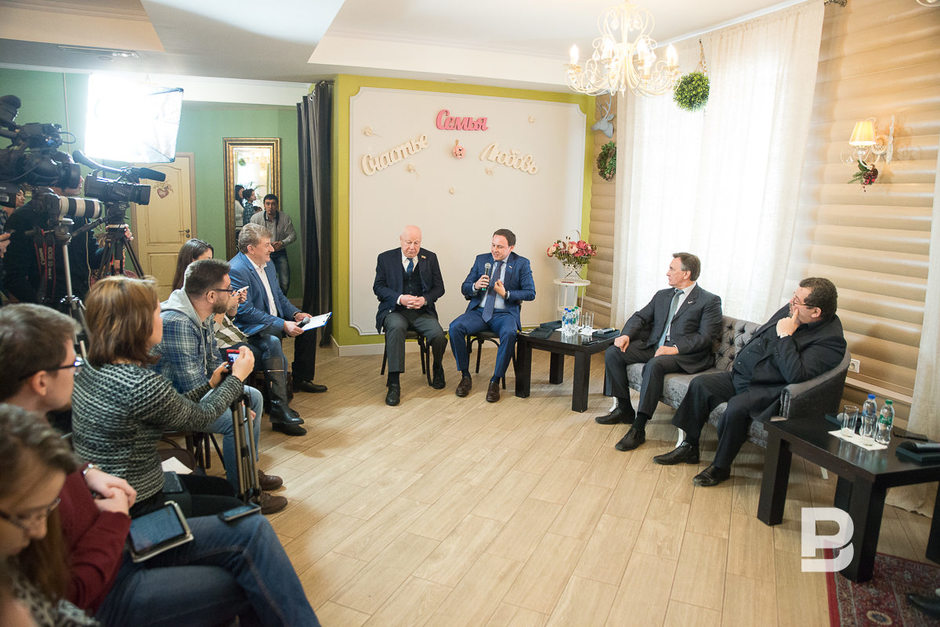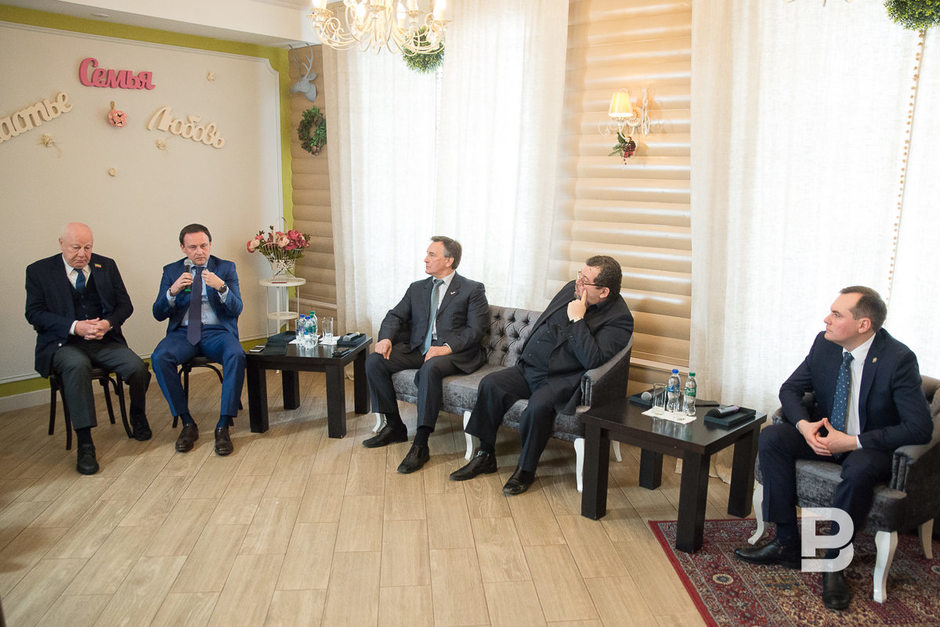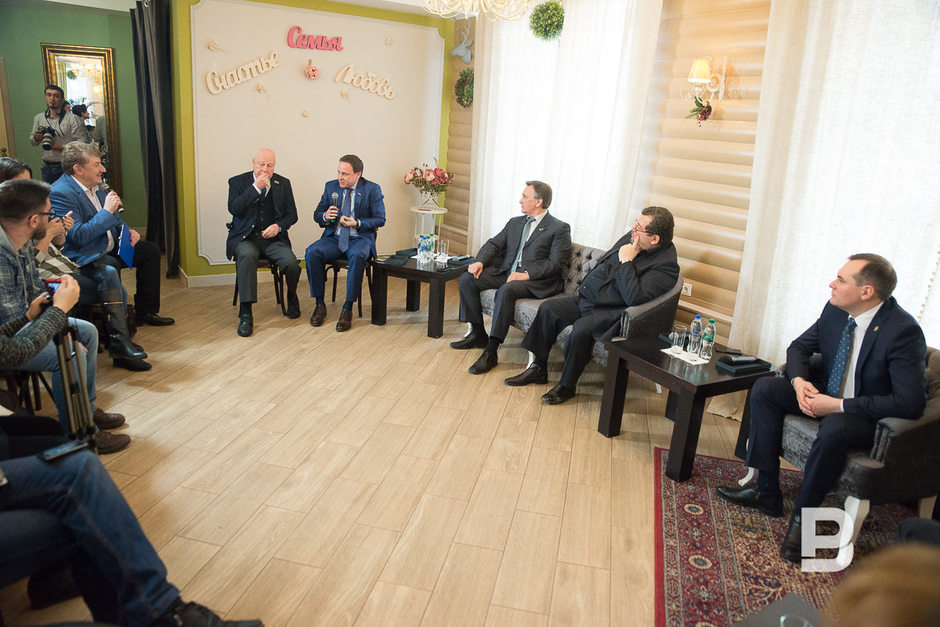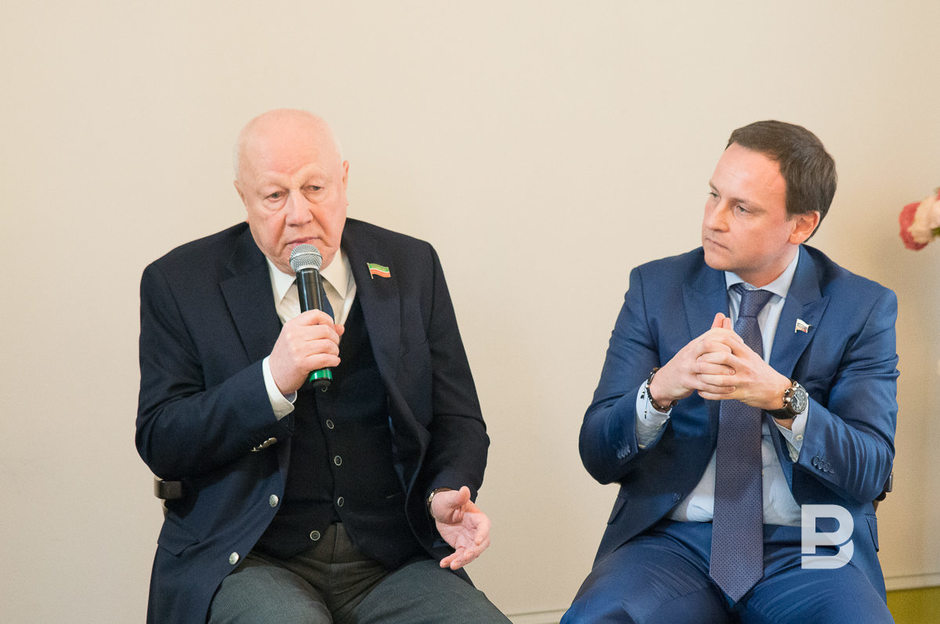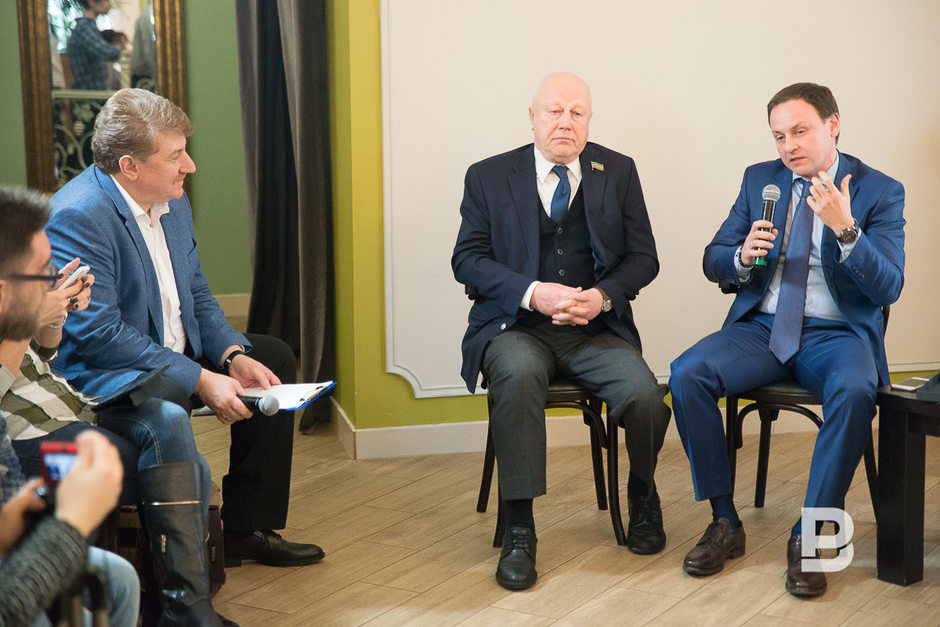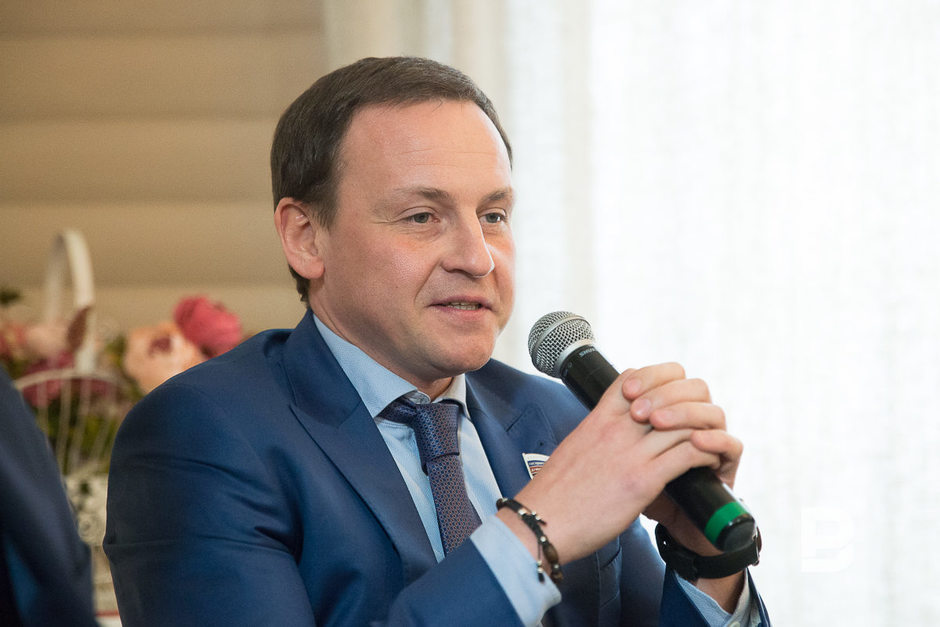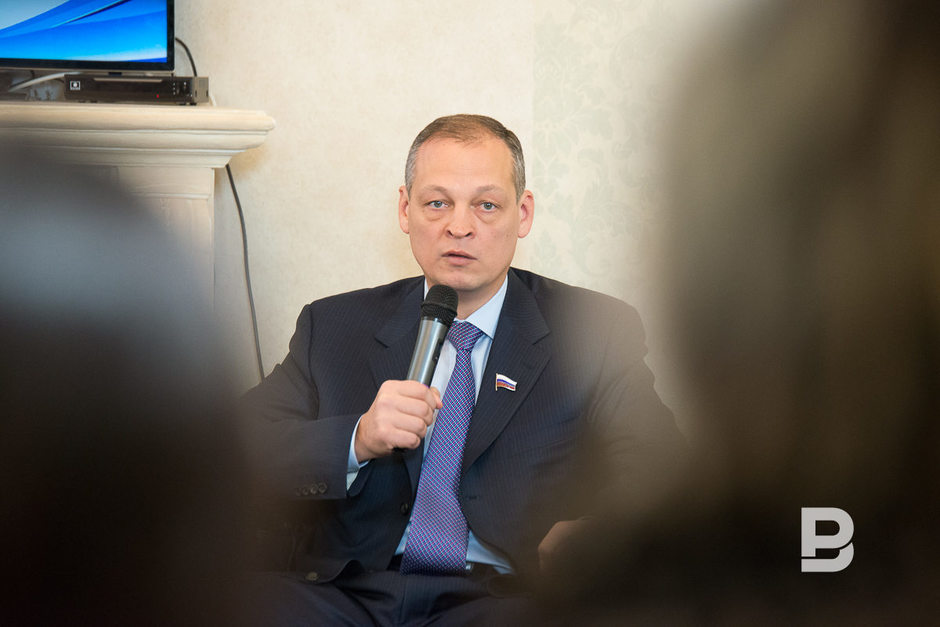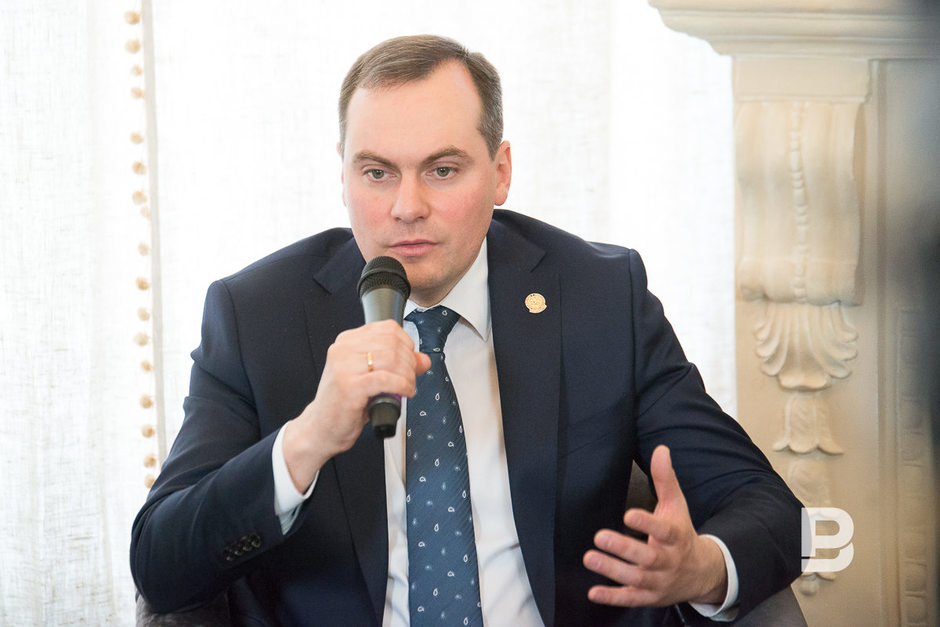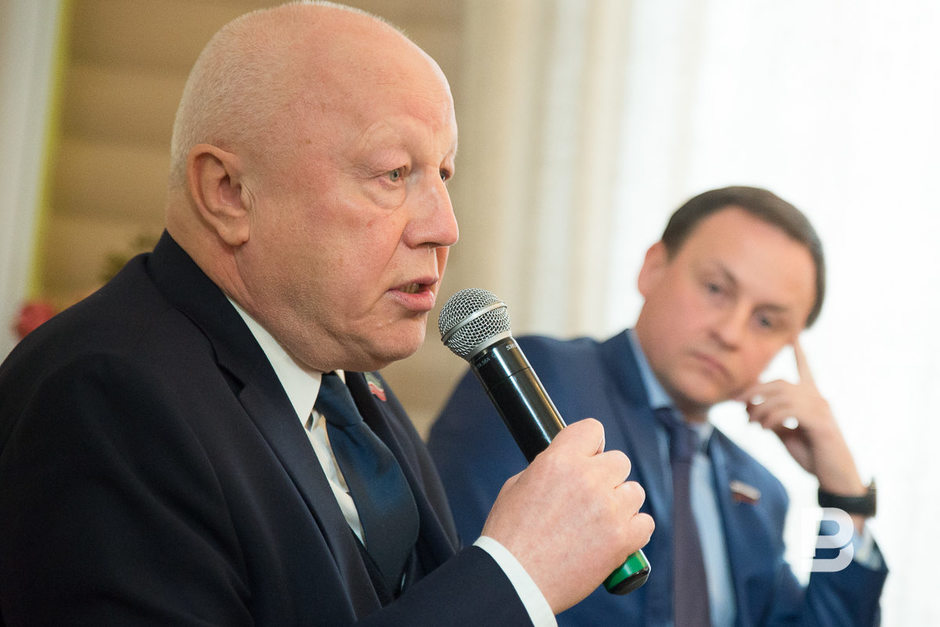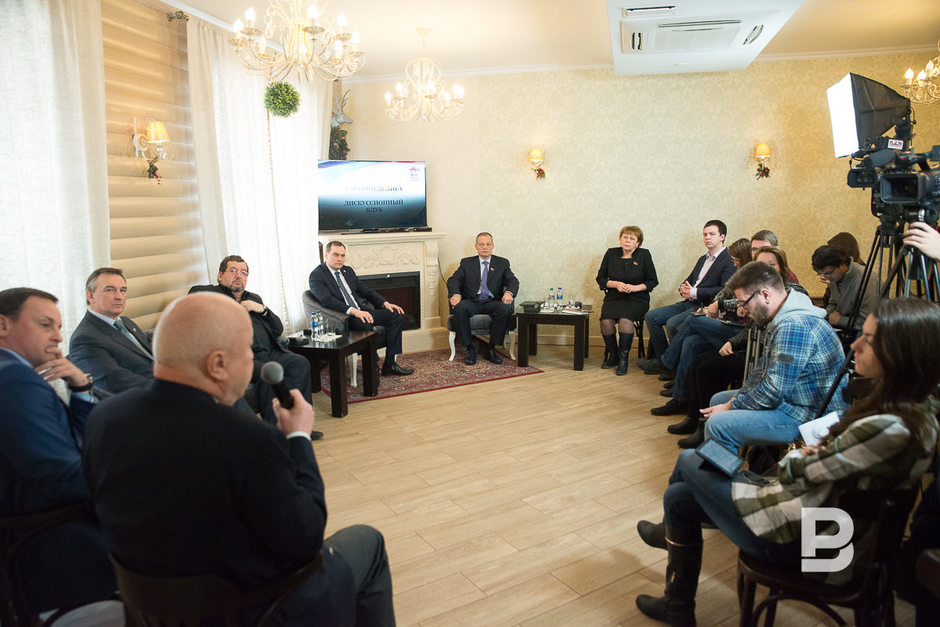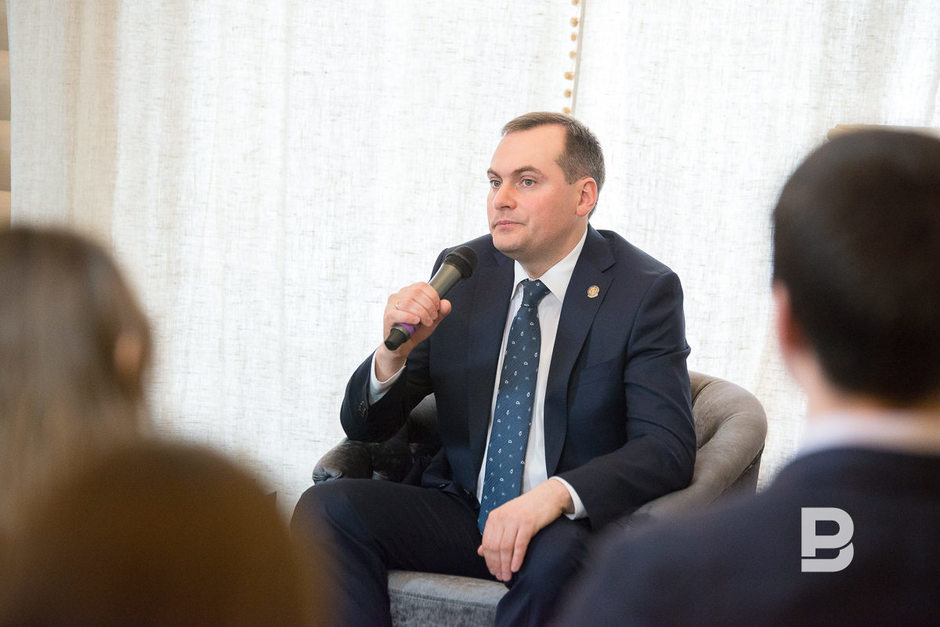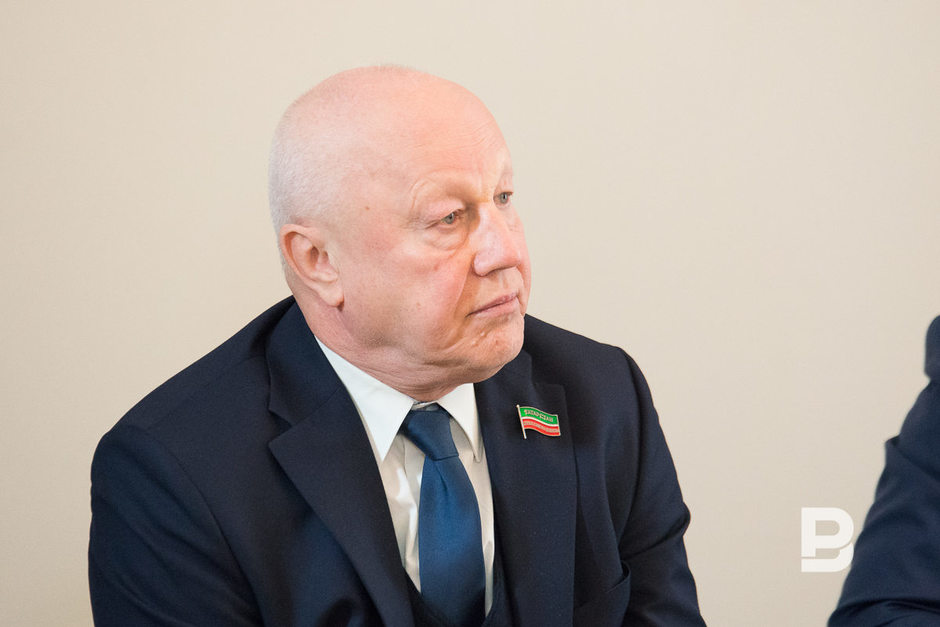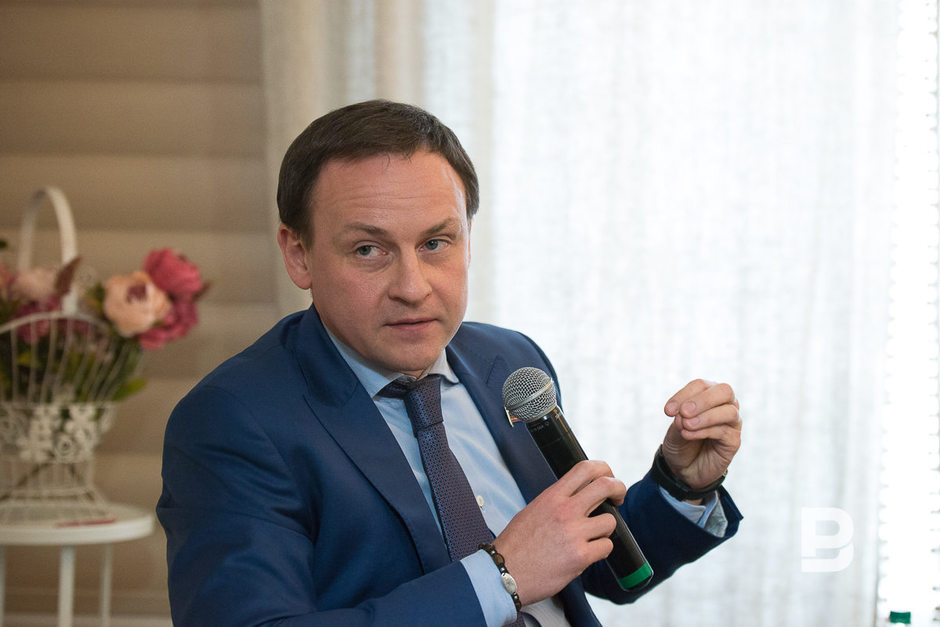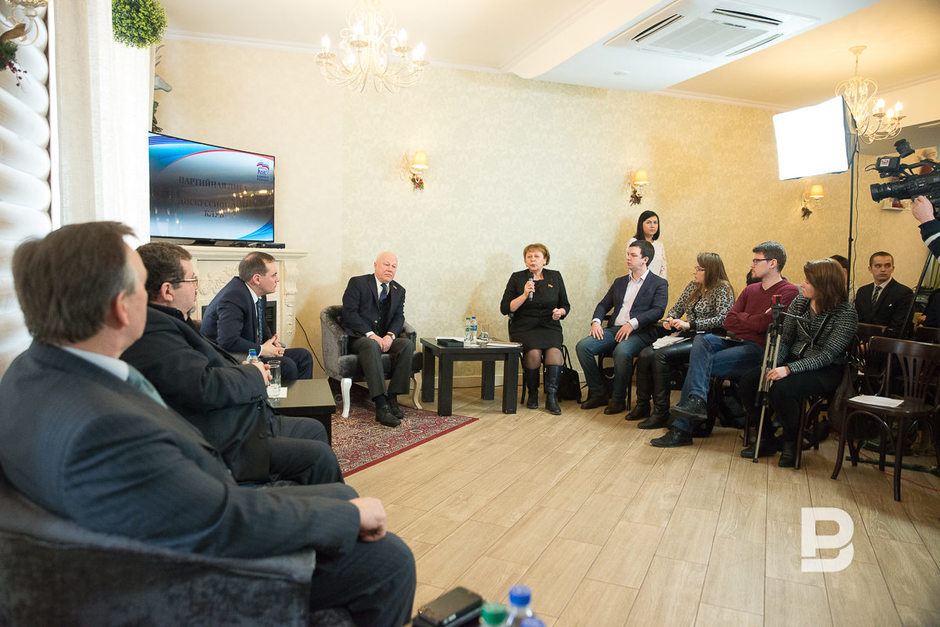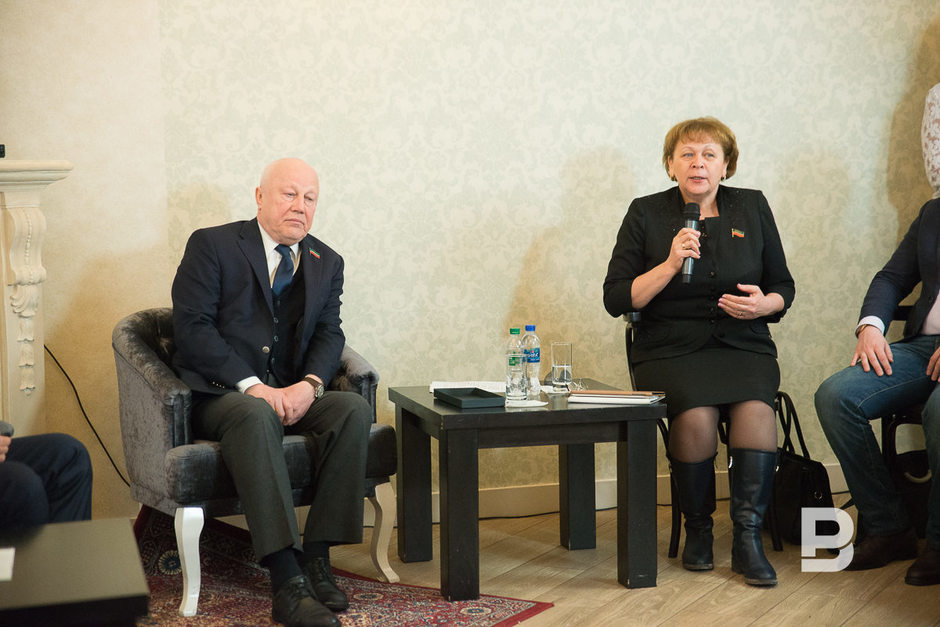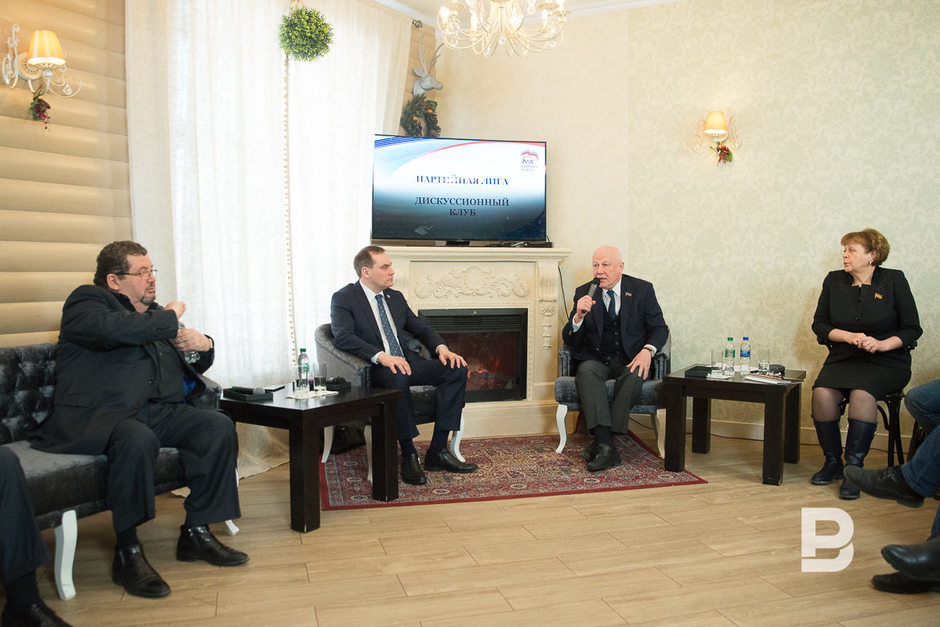Artyom Zdunov: ‘We should keep Chinese around, so we get trained’
Tatarstan agreed with Haier on the production of not only refrigerators but also the air-conditioners and the televisions
The development of agriculture, friendship with foreign investors, the continued development of industrial sites and ruble 'free floating' – such measures of a rescue of the Russian economy were suggested by the participants of discussion club of United Russia held on 14 March in Kazan. The correspondent of Realnoe Vremya witnessed how the speakers agreed that it is time to get used to the crisis, that the sanctions most likely are for a long time, and, maybe, forever, and that the government has no idea what to do with it. Meanwhile, almost 70% of the population claim about the deteriorating economic situation in the country.
When do Russia start feeding more a half of billion people over the world?
Tatarstan deputies and officials tried to find a way out of the crisis at the second meeting of the Party League organized by the Tatarstan office of United Russia. They invited federal and regional deputies and officials, representatives of public organizations, in order to discuss the future of Russia and Tatarstan during the crisis in the presence of the press. State Duma deputy from Tatarstan and co-owner of KV Agro Airat Khairullin, traditionally for authority representative, began looking for the positive aspects during the crisis: sanctions by the West will force to mobilize the Russian agriculture, the potential of which has not been revealed yet.
According to the businessperson, Russia could feed 1.3 billion people, and only Tatarstan – 38 million. But when it will be possible, he didn't say, as he didn't mention the fact that Russia, on the contrary, is a major importer of many types of food: only for the first half of last year the country imported goods at $5.9 billion. 'It was really easy to produce energy resources for us, to sell them at high prices and thereby fill the budget of our country,' Khairullin explains the secret of economic recovery in the early 2000's. Now the emphasis should be put on livestock: in the next 2-3 years, Tatarstan will be able to increase meat production significantly. 'I am convinced that in 15-20 years the proportion of agriculture will be at the level of 15-20% of GDP,' he believes.
After such speech, even the moderator of the discussion, the head of Executive Committee of Tatarstan Regional Office of All-Russian Political Party United Russia Andrey Kondratyev considered Khairullin as on optimist. 'Of course, all of us, thanks to our President of the Republic Rustam Nurgalievich [Minnikhanov – editor's note], such optimists, we look optimistically, but if you look at many indicators, we are still falling,' he noticed.
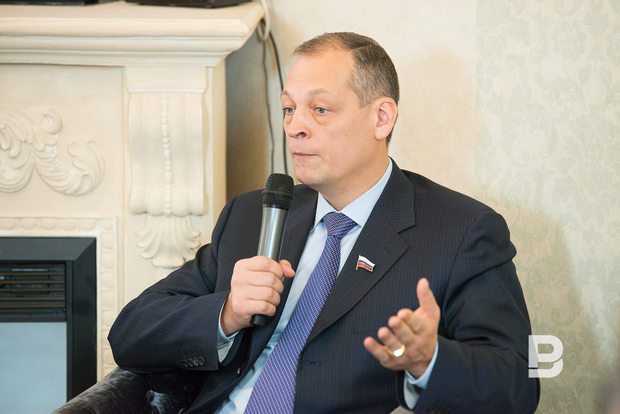
Another State Duma deputy from Tatarstan Aleksander Sidyakin agreed that politicians 'were too relaxed all these years' while oil prices were increasing, and now it's time to differentiate the economy. He confirmed the words of Kondratyev by statistic data from the Public Opinion Foundation: 69% of residents noticed that their economic situation has deteriorated, 40% — noticed an increase in commodity prices, and against this background, if Duma elections were held now, not in September of this year, only 50% would vote for United Russia.
'It means that the party is in a downtrend now, and it is a challenge because all campaigns that had been held earlier, always were in an uptrend: in 2011, the 2008 crisis consequences were overcome, and in 2007, they, of course, were overcome after 1998. And now we are face to face with the situation,' he admitted. Now the party is to take that hit.
'When the chairperson of the Commission is not the representative of United Russia, it, of course, strengthens the trust'
In this situation, he believes even the appointment of the State Duma deputy from Tatarstan, a communist Vasily Likhachev to the Central Election Commission is a good thing, maybe even better than if the representative of United Russia would have been. 'From a technological point of view, if the CEC chairperson is a representative of the communist party, it will be an interesting godsend. Because the CEC, basically, is a counter. They do not affect the results, Churov just became the target of information attacks,' he said. The audience smiled.
The reason for the smiles was the alleged error of the CEC, which, summarizing the results of elections in 2011 in the Rostov region, broadcasted data, according to which the turnout was 146%. 'When the chairperson of the Commission is not the representative of United Russia, it, of course, strengthens the trust in the legitimacy of the elections,' he admitted.

'At the beginning of the century, the world is facing a civilizational crisis and strategic format problems. We declared the European choice for Russia. And look what's going on in Europe, with its migration. I wouldn't say that it's a dead end, but there will be major changes. Has Russia refused from its path? This is a question that requires a response from all parties, and no one has answered it yet. If you read the current press, it is nothing to find but the insults from Europe. To leave or not to leave the Council of Europe? We need a response from parties in the coming months,' a deputy of the State Council of Tatarstan Marat Galeyev stated a more global issue. No one of those present could give the answer, however, they unanimously agreed that, closing from the world's major economies, they will fail to achieve economic growth.
'With Haier we have more strategic relations'
Against this background, the Minister of Economy of Tatarstan Artyom Zdunov (photo on the poster) was asked whether local manufacturers are in a difficult situation due to the fact that the government offers more incentives to foreign producers. They talk about Chinese company Haier, which opened a production site in Naberezhnye Chelny and enjoys privileges on the territory of special socio-economic development, which displeases the local manufacturer of refrigerators POZIS. 'There were appeals from the Director General… Of course, the conditions should be clear and the same for equipment manufacturers. But only Naberezhnye Chelny has the status of the territories of priority development yet. We have just made the application on Zelenodolsk, but it has not been considered yet, although it has every right to receive. But, honestly, with Haier we have a more strategic relation, we are talking about the production of home appliances, as well as the televisions and air-conditioning systems,' he admitted. According to the Minister, they should 'stop flaunting' by talks whether to 'let in' the Chinese manufacturers here. 'Look at their technologies that they produce. We should keep them around, so we trained,' said Zdunov.
Advisor to Director General of TV company Efir-24 Grigory Tinsky invited as an expert and, apparently, representing the moderate opposition point of view, questioned the anti-crisis actions of the government, reminding that the State Duma is considering a law on the creation of insurance wages reserves. If a company cannot ensure payment of salaries to the staff, this fund will help. The Central Bank has also been criticized: 'When Soviet Russia in the 1920s was ruled by illiterate sailors in caps, they already knew that the currency and gold should be taken from the bourgeoisie and aristocracy. But why now, when everyone has a great amount of currency under a mattress, the Central Bank does not want to take them in banks, solely on the grounds of the safety of the banking system?' he wondered. Where 'every' Russian could get the currency reserves during the crisis, he did not specify.

'In the government there is not one point of view, there are several camps,' parried Sidyakin. 'In the Duma there are LDPR, they are bringing a bill to ban circulation of the dollar. And everyone start asking what you are doing in the Duma? But of the madness of the brave we sing a song… [line from a poem of Maksim Gorky – editor's note] There can be great amount of draft bills, but in doesn't mean that we will adopt all of them.'
He reminded that, for example, at the 'night' meeting of Vladimir Putin with the economic block of the government, where they discussed measures to support the industry, the parties failed to agree and come to a consensus. For example, about whether to capitalize additionally the Industry Development Fund or not, which has long 'given out' all of allocated to them 20 billion rubles. By the way, the deputy mentioned for several times that meeting, however, as it turned out later, he himself didn't attend it and also read in the press about it.
Why we should not artificially strengthen the ruble, 'like as in the 1990s'
Then Tinsky complained that many talented economists do not get to the government and all these discussions of problems, such as this one, and all these proposed ideas are not heard at the federal level. 'They need to understand that Tatarstan is not such provincial republic,' he said. However, he didn't say what the list of initiatives needs to be, once again criticized the Central Bank which does not want to stabilize the ruble exchange rate. In order to do this, it is enough to require exporters to sell their foreign exchange earnings at least partially, 'like in the early 1990s'.
'Of course, Shuvalov (First Deputy Prime Minister of the Russian Federation Igor Shuvalov – editor's note) is not interested in it, I don't even want to say those words here, but… offshore multimillionaires they are not really (interested) in severity of currency regulation,' he decided. However, the idea of Tinsky was rejected at the regional level, before reaching the federal. 'They shouldn't be obliged to sell foreign currency earnings in any case, because the ruble is what it is, let it be over 70, over 80, but the ruble now is a convertible currency. We will reduce the trust to the ruble at once, because all of these administrative resources have a direct impact. If we introduce this, it will be hard to refuse from it,' replied Zdunov.
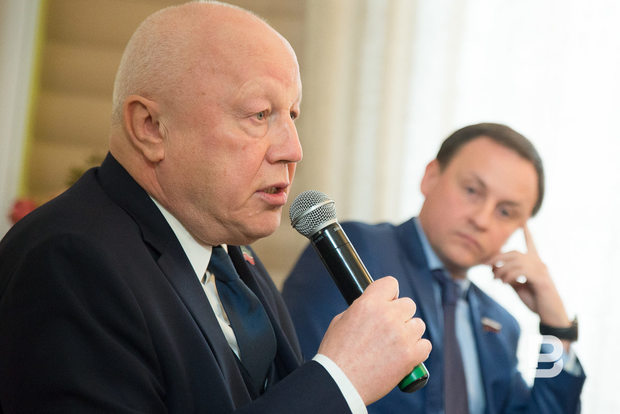
'Sanctions will never end'
'We need to fit in the world with a positive doctrinal economy,' said Galeyev, giving the example of the work of Tatarstan, which managed to shift the main point of growth of the economy of the Republic from oil production to refining. 'Russia has always been a country where the laws played a relative role. It has always lived on concepts, it was and is, it can't just disappear. In this regard, what the segment of black economy is. We should know that and accept it,' he said. The deputy believes that in such situation the measures taken by the state effect little on the economy, and urged once again not to tighten the laws that apply to that part of the business, which is already working in the legal field. Another proposal was a decentralization, which will create incentives for economic development at the local level. 'Six months before the quit of the third President of Russia (Dmitry Medvedev – editor's note) there was a project that immediately died out after he left. I think it would be nice to get back to it: autonomy, starting from the municipality, could seriously improve the situation,' he believes.
Sidyakin reminded that officials hope for the lifting of the sanctions, that will stimulate the economy. 'It's time to forget about it. It is possible that the sanctions, in principle, will never end. Because there is a containment, for example, Lesin died, statements appeared to do a 'Lesin list' (by analogy to the 'Magnitsky list' – editor's note). Actually, this is a new normality, when they knock from the bottom and say that it is not the bottom yet, we must be ready for it,' he said, reminding that the country has no long-term development plan.
'Is it possible to thrive in a particular region? It is if the region is open. Here we have a policy of open region, despite everything,' said Zdunov.
He reminded that in 2015 in the SEZ Alabuga two plants of Ford Sollers were opened with American participation, despite sanctions. 'Is it sanctions? I do say the same thing about Turkish manufacturers. And Tatarstan people work here and master their skills,' he defended international partnership. 'Isolation is the path to nowhere,' he concluded.
The way out during the crisis Zdunov believes in the continuance of work on industrial sites. 'Civilized forms. Industrial parks of Tatarstan is a brand. Because they are filling up,' said the Minister. In conclusion, the speakers shook hands as a 'conciliation' gesture, recognizing that they did not 'quarrel' in fact.
